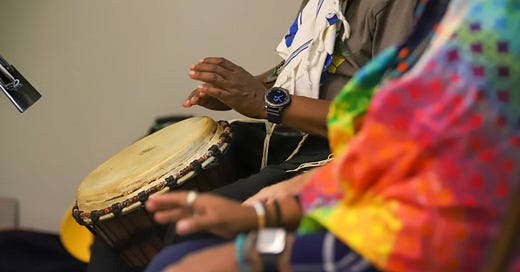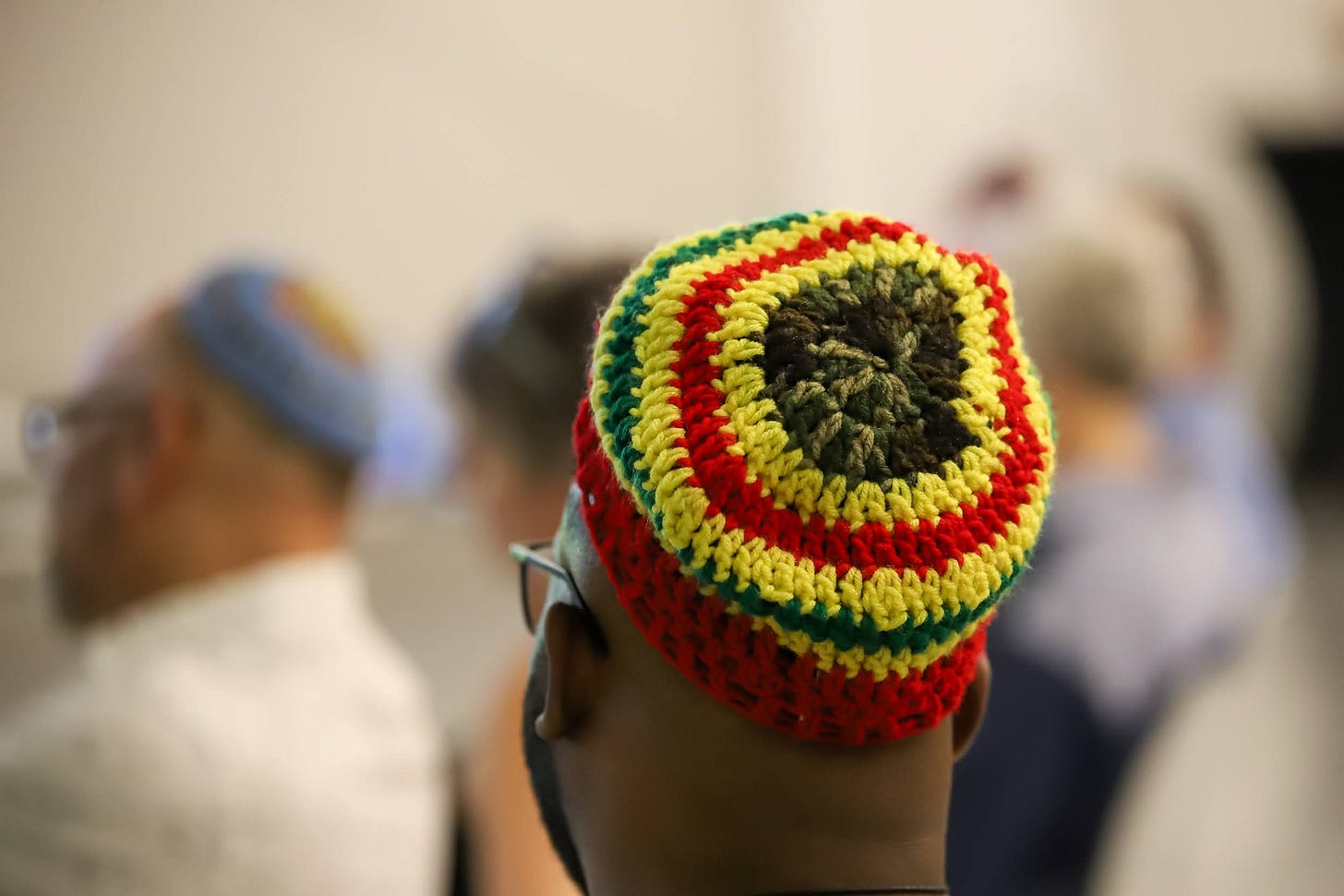It’s Black History Month, a time when people celebrate Black culture, music, and contributions. But too often, that celebration is shallow—loving the rhythm while ignoring the struggle that created it. Too often, people want the joy without acknowledging the pain.
Recently, I had yet another interaction that reminded me of this pattern. A stranger reached out, demanding explanations, assuming the right to interrogate me without relationship, without reciprocity. But this wasn’t new—this happens often.
As a Black Jewish woman who is also a rabbi, I’ve seen this entitlement over and over again—the expectation that I should justify myself, that my existence and my views are open for scrutiny in ways that others’ are not. These interrogations are often rooted in racism, and when I point that out, I am met with the gravest of accusations—that I have called them the worst thing imaginable: racist. But I have done no such thing—I have simply pointed to the impact of their words and the root of their assumptions. More often than not, I find that these individuals claim to work for racial justice and anti-racism, yet none of that work has centered on their Jewishness or examined how racism has shaped their own Jewish perspectives.
But Pirkei Avot 2:5 teaches: "In a place where there are no humans, strive to be a human." I return to this teaching often. It speaks to the responsibility to stand firm in dignity and justice, even when others act in ways that lack integrity. It reminds me that, no matter how often these dynamics play out, I will continue to show up in full authenticity. I will not shrink to make others comfortable, nor will I entertain demands that come from entitlement rather than genuine relationship.
This dynamic—where Black people are expected to explain, defend, and accommodate while others take what they want without true engagement—echoes far beyond a single email. It happens in the Jewish community. It happens in America. It happens in history.
So in honor of Black History Month, I want to share a poem I wrote, "They Want the Joy, Not the Pain." Because history is about what is celebrated and what is erased.
I’m also linking another poem, (here) Black Women, My Sisters, and below.
And lastly, a shout-out to Beyoncé for winning Grammy Album of the Year and Best Country Album—even after being shut out of the CMAs—proving once again the excellence and resilience of Black women.
They Want the Joy, Not the Pain
They clap to the rhythm,
but never ask where it was born—
the fields, the chains,
the hands that bled
to give the beat its life.
They love the shine,
the way our music glistens,
but they turn their backs
on the rain that watered the roots,
the storms that carved the melody.
They wear our joy like a crown,
call it culture, call it freedom,
but the soil that birthed it—
the toil, the tears, the names erased—
is too heavy for their gaze.
They hum the blues
as if it were theirs to hum,
sip sweet tea brewed
from bitter roots
and call it love.
They want our dance,
but not our history,
our laughter,
but not our tears.
They forget that the soul of the song
is forged in fire,
that the joy they celebrate
is born from centuries of pain.
Lift us up,
don’t just take.
Honor the hands that built the rhythm,
the backs that bore the weight,
the voices that still cry out
for justice.







Okay, sis, I see you. One more pitch hit right out of the park:
"But Pirkei Avot 2:5 teaches: 'In a place where there are no humans, strive to be a human.' I return to this teaching often. It speaks to the responsibility to stand firm in dignity and justice, even when others act in ways that lack integrity. It reminds me that, no matter how often these dynamics play out, I will continue to show up in full authenticity. I will not shrink to make others comfortable, nor will I entertain demands that come from entitlement rather than genuine relationship."
THANK YOU!